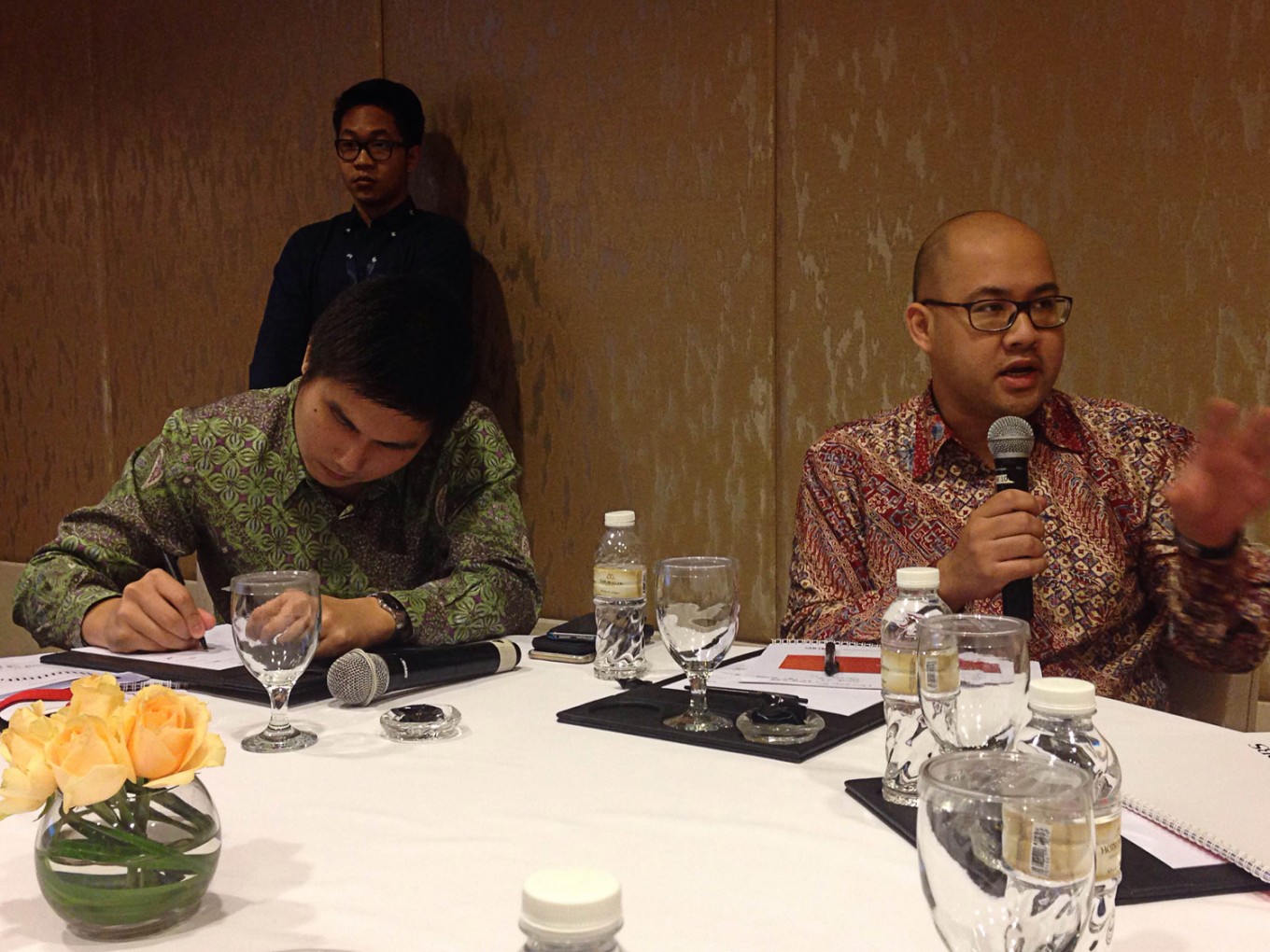Prolonged low commodity prices lead to conservative spending: DBS
Change Size
 Business talk: DBS Indonesia group research head Maynard Arif (right) speaks during a press meeting in Jakarta on Tuesday. DBS Vickers research analyst Edwin Lioe (left) was also present. (thejakartapost.com/Anton Hermansyah)
Business talk: DBS Indonesia group research head Maynard Arif (right) speaks during a press meeting in Jakarta on Tuesday. DBS Vickers research analyst Edwin Lioe (left) was also present. (thejakartapost.com/Anton Hermansyah)
P
rivate lender Bank DBS Indonesia, a subsidiary of Singapore-based DBS Group Holdings, says Indonesian customers now tend to be more careful in spending, especially on secondary goods, as a result of decreasing income caused by low commodity prices.
After the commodity boom, beginning 2008, having more or less ended last year, Indonesian household income have been unstable. The prolonged low commodity prices have led to people changing their consumer behavior, the bank further says.
“It mainly is happening in areas outside Java where commodities are still the main source of people’s income. Now, they spend less money on secondary goods, which are relatively more expensive, such as vehicles,” DBS Indonesia research group head Maynard Arif told thejakartapost.com during a research discussion in Jakarta on Tuesday.
He further explained that motorcycle purchases, which usually occurred after harvest times, showed sharp decline. During the first half of this year, motorcycle sales declined by 6.45 percent to 2.9 million from the same period last year, showing that the purchasing power of people with middle-to-low income was weaker, he said.
Meanwhile, this year’s first-half car sales as a proxy for middle-income consumer behavior increased by 0.98 percent to 531,929 units from to the first half of 2015. The figures indicated continued strong purchasing power in the middle-to-upper demographic.
“Buying a car is not a problem for the middle-to-upper [class], especially given manufacturers have released many new models,” said Maynard. In terms of property, the purchasing power of [this segment of society] was still weak, however, he said. “We will see if the tax amnesty program can increase their appetite on property investments again,” Maynard said. (ebf)









